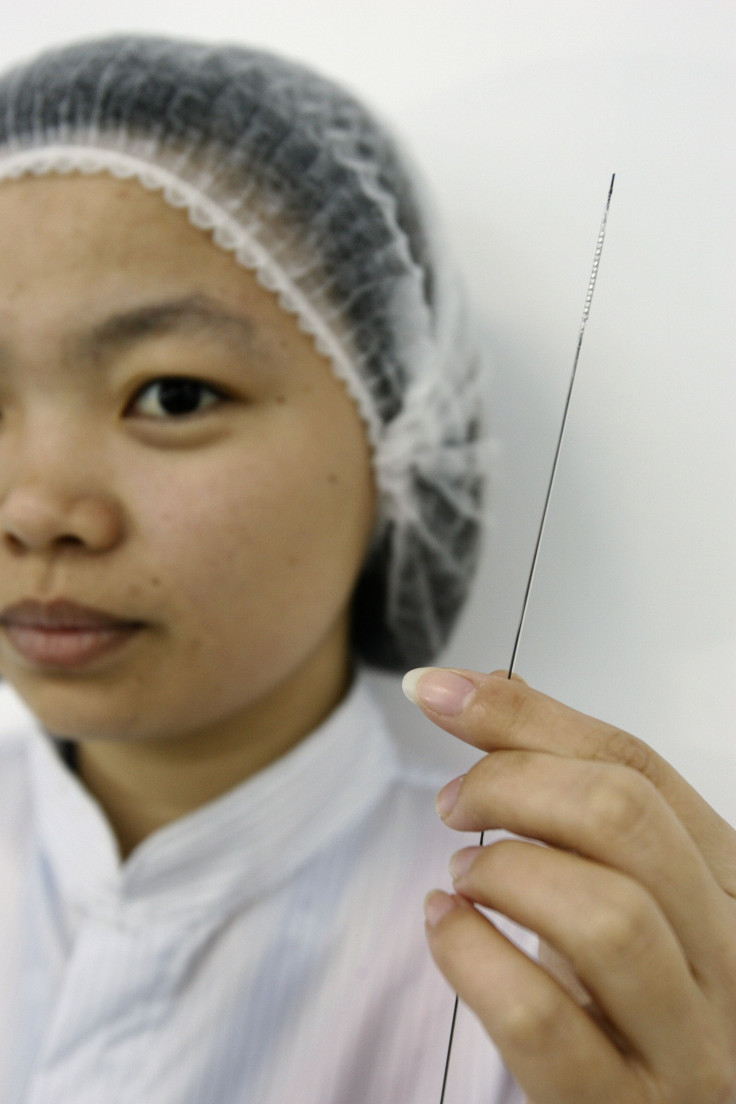Dissolving heart stent passes first major trial

A revolutionary type of heart stent that slowly dissolves after it has done its job has passed its first major trial in a large study, according to U.S. doctors. The dissolving stent, manufactured by Abbott Vascular, was also found to perform as well as a conventional stent in the one-year study.
The new study, presented at the annual Transcatheter Cardiovascular Therapeutics conference and published simultaneously in the New England Journal of Medicine, seeks to support U.S. regulatory approval of the device.
Stents refer to the tiny mesh cages that keep blood vessels from reclogging after an artery-opening angioplasty procedure. In the U.S., conventional stents are permanent and made of metal, which sometimes cause inflammation and other problems over the years. The Absorb stent, meanwhile, comprises a degradable material designed to stay intact and release medicine for a year, before breaking down over the next two years. The dissolving implant is already being sold in Europe.
The new study involved 2,000 patients with chest pain due to one or two clogged arteries and compared those treated with the dissolving stent to participants who were given a conventional Abbott stent called Xience. After a year, the study found that the dissolving stent worked just as well as the conventional implant. For their next steps, the researchers will monitor the participants longer to see how they fared when the stent dissolved.
The dissolving stent holds the artery open long enough for it to heal; aftwerard, the stent completely goes away, according to Dr Dean Kereiakes, one of the study’s leaders who works at the Christ Heart and Vascular Center in Cincinnati. The dissolving stent can return the artery to its normal, natural structure and function, Kereiakes said in an interview with the Associated Press.
In a commentary that appeared in the New England Journal of Medicine, Dr Robert Byrne said that the idea of a dissolving stent is attractive, but that promise alone is not enough to make people unconditionally embrace the technology.
Byrne is from the Technical University of Munich who has been a paid speaker for some rival stent and heart device makers. He added that there is a study underway that involves 5,000 patients, which will determine whether such promise will become a reality.
The quest for successful dissolving heart stents has kept scientists busy over the past few years. In Australia, a female patient in Fremantle Hospital received the first dissolving implant in 2012. She was successfully implanted with a lattice-like stent made of polylactide, a material derived from corn starch, which is meant to go away in two years. Fremantle Hospital was among the first medical centres to get Therapeutic Goods Administration approval to use the stents.
According to the Heart Foundation, heart disease is a leading cause of death in Australia, with more than 40,000 deaths attributed to cardiovascular health issues in 2013.
Contact the writer at feedback@ibtimes.com.au or tell us what you think below.





















